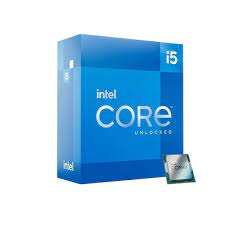Table of Contents
amazon Core i5-13600KF reviews
In addition to having more cores than its predecessor Core i5 12600KF, Core i5-13600KF also comes with more threads, namely 14 cores and 20 threads compared to just 10 cores and 16 threads found on Core i5 12600KF.
Having more threads means your CPU can handle more things at once, so having more threads allows more apps to run at the same time, which also improves performance in multithreaded tasks. Multithreaded tasks include anything that requires processing multiple operations at once, as your PC needs to take in a lot of information at once for it to work smoothly.
CPU Specifications
The Intel Core i5-13600KF CPU will be the fastest-performing Core i5 chip of all the Intel Core i5 CPUs. This chip has a total of 14 cores and 20 threads. The configuration includes 6 P-Core based on Raptor Cove architecture and 8 E-Core based on Grace Mont architecture.
The CPU comes with 24MB of L3 cache and 20MB of L2 cache for a total of 44MB of cache. This chip is running at a base clock of 3.5 GHz and boost clock of 5.1 GHz. The all-core boot clock is 5.1 GHz for the P-Core and 3.9 GHz for the E-Core.
Core i5-13600KF differs from Core i5-13600K in that it is reduced to the iGPU part, being forced to reduce the iGPU does not affect the gaming performance of the Core i5 13600KF, for work tasks. Regarding video rendering, the absence of an iGPU will also affect the image processing performance of the CPU and the PC.
Having more threads means that your CPU can handle more things at once, so having more threads allows more processes to be run at the same time, which also improves performance in multithreaded tasks. Multithreaded tasks include anything that requires processing multiple operations at once, as your PC needs to take in a lot of information at once for it to work smoothly.
The number of cores and clocks has been increased
Essentially, an increased core count and an increased thread count will allow for a smoother experience when running multi-threaded tasks, which should have a positive impact on anyone looking to get into those jobs. Creativity such as photo editing, video editing….
Intel has increased support for DDR5 memory up to 5600 MT/s if you use one DIMM per channel (1DPC), a big increase from Alder Lake’s previous 4800 MT/s. Intel has also increased the 2DPC speed up to 4400 MT/s, an improvement over the previous generation’s 3600 MT/s. Intel will also continue to support DDR4 memory, which is expected to coexist in the market with DDR5 until the end of 2024. Unlike AMD, this is Intel’s very clever way of letting users do it familiar with DDR5 but at the same time maintain DDR4 support to retain old customers.
The Intel Core i5 13600KF Raptor Lake CPU is the flagship Raptor Lake that beats its predecessor in another category, as it has a higher maximum turbo clock than its sibling. The i5 13600KF has a maximum turbo boost clock of 5.1 GHz, with the i5 12600K clocking in at 4.9 GHz.
The maximum turbo boost clock comes into play when the CPU takes on single-threaded workloads. Gaming is the best example of how a CPU with a high turbo boost clock will increase FPS. The fact that the Raptor Lake CPU has a higher maximum turbo boost clock means it has better performance than the 12th-generation Alder Lake CPUs.
Improved caching
Thanks to the larger L2 and L3 cache sizes of Raptor Lake, latency is also improved. This is a huge improvement – higher cache capacity often directly affects cache latency. But with Raptor Lake, this happens very rarely. The only exception to latency improvements is with the L3 cache. However, the E-cores are equally good and even better as far as the L3 cache is concerned and they see reduced latency compared to Alder Lake.
Bandwidth has also been greatly improved, but it depends on the workload. For example, performance increases with L1 cache by 12.5% in single-threaded testing on P cores. Elsewhere, however, performance is the same between both architectures – including E cores. However, in multithreaded workloads, cache bandwidth is significantly improved from 11% to 44%.
Summary
With the remarkable upgrade of Raptor Lake from single-core multi-core performance to the improvement of cache memory, Raptor Lake in general, or Intel Core i5 13600KF is worthy in the price range and beats most of all CPU models in the same price range.
where can you get a Core i5-13600KF online
Intel Core i5-13600KF Desktop Processor 14 cores (6 P-cores + 8 E-cores) 24M Cache, up to 5.1 GHz: Buy it now
GIGABYTE Z690 Gaming X DDR4 & Intel Core i5-13600KF Desktop Processor 14 cores (6 P-cores + 8 E-cores) 24M Cache, up to 5.1 GHz: Buy it now
Intel Core i5-13600KF Desktop Processor 14 cores (6 P-cores + 8 E-cores) 24M Cache, up to 5.1 GHz & be Quiet! Dark Rock Pro 4, BK022, 250W TDP, CPU Cooler: Buy it now
core i5-13600kf benchmark does i5 mean 5 cores is outdated motherboard price features explained review socket vs i5-13600k k 13600k i5-13600kfvs i5-13600kfbenchmark i5-13600kfreview i5-13600kfprice i5-13600kfsocket i5-13600kfmotherboard

